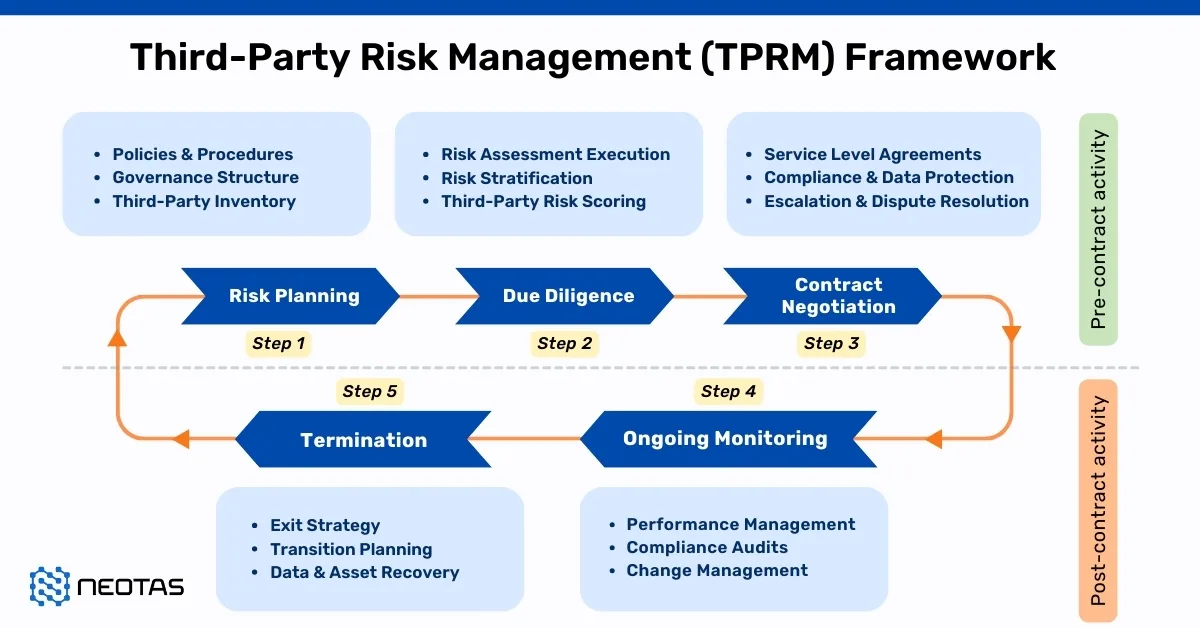UK Financial Intelligence Unit
The UK Financial Intelligence Unit (UKFIU) operates independently within the National Economic Crime Command (NECC) as an integral part of the National Crime Agency (NCA). Its primary role revolves around the reception, thorough analysis, and dissemination of Suspicious Activity Reports (SARs) in accordance with the established SARs regime.
A core responsibility of the UKFIU is to ensure that the wealth of financial intelligence contained within SARs is effectively leveraged to combat serious and organised crime, with a specific focus on countering money laundering and terrorist financing activities.
The overarching goal of the UKFIU is to diminish the threat of crime to communities, businesses, and individuals, while concurrently heightening the risk and repercussions for criminals operating within the UK.
This is achieved through several key strategies:
- Empowering individuals and businesses to fulfill their legal obligations under the Proceeds of Crime Act (POCA) and the Terrorism Act (TACT). This is accomplished by promptly and accurately providing relevant authorities with pertinent information regarding suspected money laundering, criminal proceeds, and terrorist financing.
- Harnessing the information supplied by the reporting sector to develop comprehensive insights into criminal financial flows and gains. This accumulated knowledge forms a critical foundation for informed decision-making and strategic interventions.
- Supporting law enforcement efforts, including the retrieval of illicit assets, through the effective application of acquired intelligence. This aids in dismantling criminal enterprises and depriving wrongdoers of the proceeds of their unlawful activities.
- Collaborating with international financial intelligence units in strict adherence to the guidelines and obligations outlined by the Financial Action Task Force and the Egmont Group. This global cooperation strengthens the collective endeavor to combat financial crime on an international scale.
- Striving to enhance the overall value and impact of the SARs regime by refining processes, fostering collaboration, and continuously improving the effectiveness of intelligence-sharing initiatives.
In essence, the UKFIU plays a pivotal role in the UK’s efforts to safeguard its financial landscape from the pernicious influences of serious and organised crime. Through its diligent analysis of SARs and strategic collaborations, the unit contributes significantly to the disruption and dismantling of illicit financial activities, ultimately bolstering the security and integrity of the UK’s economic ecosystem.
A. Importance of the UK Financial Intelligence Unit (UKFIU)
The UKFIU holds a position of paramount importance within the financial regulatory framework of the United Kingdom. In a globalised economy, where the flow of funds transcends borders, safeguarding the financial system from illicit activities is imperative. The unit serves as a vigilant guardian, tirelessly monitoring and scrutinising financial transactions to detect and deter money laundering, terrorist financing, and other forms of economic crime. By acting as a bulwark against these threats, the UKFIU not only protects the economic stability of the nation but also upholds its reputation as a hub of international finance.
Moreover, the UKFIU plays a pivotal role in fostering confidence among investors, financial institutions, and stakeholders in the UK’s financial sector. Its robust mechanisms for intelligence gathering and dissemination provide assurance that the financial system operates with transparency, accountability, and adherence to regulatory standards. This, in turn, bolsters the UK’s standing in the global financial community, attracting investments and fostering a conducive environment for economic growth.
B. Role of UKFIU in Combating Economic Crime
The role of the UKFIU transcends mere surveillance; it embodies a proactive stance in the battle against economic crime. With an arsenal of cutting-edge tools, analytical capabilities, and a network of strategic partnerships, the unit not only identifies suspicious financial activities but also facilitates their investigation and prosecution. By collaborating closely with law enforcement agencies, both domestically and internationally, the UKFIU ensures that financial criminals are brought to justice, thereby sending a clear message that illicit financial activities will not find refuge within the borders of the United Kingdom.
In essence, the UKFIU’s role is not confined to the realm of financial regulation; it is a linchpin in preserving the integrity, reputation, and stability of the UK’s financial sector. Its contributions resonate beyond national borders, bolstering global efforts to combat economic crime and reinforcing the UK’s position as a trusted player in the international financial arena.
What Does the UK Financial Intelligence Unit Do?
The UK Financial Intelligence Unit (UKFIU) serves as the cornerstone in the fight against economic crime within the United Kingdom. Its multifaceted role encompasses several crucial functions that collectively contribute to maintaining the integrity of the financial landscape.
A. Collection, Analysis, and Dissemination of Financial Intelligence
The UKFIU operates as a meticulously organised nerve center for financial intelligence. Its first core function revolves around the comprehensive collection of data and information related to money laundering, terrorist financing, and other serious criminal activities. This involves the aggregation of reports, transactions, and suspicious activity indicators from a diverse array of financial institutions and entities nationwide.
Once gathered, the UKFIU employs a sophisticated analytical process to dissect this financial data. Through the application of advanced analytical techniques and cutting-edge technology, the unit identifies intricate patterns, correlations, and anomalies. This process not only uncovers potential instances of financial misconduct but also discerns the complex web of relationships that may exist between individuals or organisations involved in criminal activity and their associated financial transactions.
Upon completing this analytical phase, the UKFIU undertakes the crucial task of disseminating the derived intelligence. This entails providing law enforcement agencies, both domestic and international, with actionable insights and information. By sharing this intelligence, the UKFIU empowers these agencies to further their investigations and take necessary enforcement actions against perpetrators of financial crimes.
B. Collaboration with Law Enforcement Agencies
Integral to its mission, the UKFIU maintains a robust collaborative framework with various law enforcement agencies. This collaboration serves as a force multiplier, allowing for the seamless exchange of critical information. Through this partnership, the UKFIU augments the investigative capabilities of these agencies, aiding in the identification and apprehension of individuals or entities engaged in criminal financial activities.
C. Operational Tasks for Effective Use of Financial Intelligence
Beyond its analytical and collaborative functions, the UKFIU undertakes a range of operational tasks to optimise the utilisation of financial intelligence. This includes the maintenance and management of an up-to-date repository of suspicious activity reports (SARs) originating from a diverse spectrum of financial entities across the nation. This repository acts as a dynamic reservoir of potential leads for further investigation.
The UKFIU’s multifaceted activities encompass the entire spectrum of financial intelligence operations. From meticulous data collection and analysis to strategic collaboration with law enforcement, the unit plays a pivotal role in safeguarding the financial integrity of the UK. Its contributions serve as a linchpin in the broader effort to combat economic crime and maintain the sanctity of the financial landscape.
UKFIU & Suspicious Activity Reports (SARs)
The cornerstone of the UK Financial Intelligence Unit’s (UKFIU) operations lies in the meticulous handling of Suspicious Activity Reports (SARs), a critical tool in the fight against economic crime. Understanding the essence and significance of SARs is paramount in comprehending the UKFIU’s pivotal role in maintaining financial integrity.
A. Definition and Significance of SARs
Suspicious Activity Reports, commonly referred to as SARs, constitute a cornerstone of the UK’s anti-money laundering and counter-terrorism efforts. These reports represent a mechanism through which financial institutions, legal professionals, and accountants communicate their concerns regarding potential illicit financial activities. SARs serve as a primary channel for the timely identification and reporting of transactions or behaviors that raise suspicions of money laundering, terrorist financing, or other forms of financial misconduct. They act as a vital early-warning system, enabling authorities to initiate further investigation and intervention.
The significance of SARs cannot be overstated. They represent a crucial element in the broader framework of financial vigilance, providing an avenue for professionals to fulfill their legal and ethical obligations in safeguarding the financial system. By promptly identifying and reporting suspicious activities, SARs play a pivotal role in deterring and disrupting illicit financial flows, ultimately bolstering the resilience of the financial sector against economic crime.
B. Mandatory Reporting for Potential Money Laundering or Terrorist Financing
The reporting of suspicious activities through SARs is not discretionary; it is a legal mandate imposed on financial institutions, legal professionals, and accountants. It forms a fundamental pillar of the anti-money laundering and counter-terrorism financing regime. The obligation to file a SAR arises when there are reasonable grounds to suspect that a transaction, or series of transactions, may be associated with money laundering, terrorist financing, or other illicit activities.
This mandatory reporting requirement underscores the collective responsibility of financial entities and professionals in upholding the integrity of the financial system. It ensures that potential instances of economic crime are promptly flagged for scrutiny, enabling authorities to take appropriate action and protect the financial system from illicit infiltration.
C. Types of Activities Warranting SARs
The range of activities warranting the submission of a SAR is broad and encompasses various scenarios indicative of potential financial misconduct. This includes, but is not limited to, unusual payment patterns, transactions lacking an apparent lawful purpose, and dealings involving high-risk customers. Additionally, any activity that may reasonably raise suspicion of money laundering or terrorist financing should trigger the filing of a SAR.
By establishing a comprehensive framework for reporting, the UKFIU ensures that a diverse array of potential risks and red flags are captured, allowing for a thorough assessment and subsequent action, if warranted. This proactive approach remains instrumental in the collective effort to fortify the financial sector against economic crime.
UKFIU’s Contribution to Crime Reduction
The UK Financial Intelligence Unit (UKFIU) is a linchpin in the broader strategy to mitigate economic crime within the United Kingdom. Its multifaceted approach encompasses several key functions that collectively contribute to reducing criminal activities within the financial sector.
A. Gathering Financial Intelligence from Various Sources
At the heart of the UKFIU’s efforts lies the comprehensive gathering of financial intelligence from a diverse array of sources. This includes reports, data, and information originating from financial institutions, legal professionals, accountants, and various other entities within the financial sector. By casting a wide net, the UKFIU ensures that potential indicators of financial misconduct are promptly captured and subjected to rigorous analysis.
This process of information gathering is instrumental in establishing a comprehensive and up-to-date repository of financial data. It empowers the UKFIU to draw upon a rich pool of intelligence, providing a panoramic view of financial activities that may be indicative of illicit conduct. This reservoir of information forms the bedrock upon which subsequent analysis and investigation are built.
B. Analysis for Identifying Patterns of Criminal Activity
Once financial intelligence is amassed, the UKFIU employs a suite of advanced analytical tools and techniques to discern intricate patterns of criminal activity. Through the application of cutting-edge technology and analytical methodologies, the unit scrutinises the data to uncover potential links, correlations, and anomalies. This process transcends mere data examination; it represents a meticulous, data-driven endeavor to unearth indicators of financial misconduct.
By identifying these patterns, the UKFIU not only pinpoints potential instances of economic crime but also lays the groundwork for more targeted and effective investigations. This analytical prowess forms a critical pillar in the broader strategy to combat financial malfeasance and serves as a testament to the unit’s commitment to proactive crime reduction.
C. Collaboration with Financial Institutions for Prevention
The UKFIU recognises that a collaborative approach is imperative in preventing economic crime within the financial sector. To this end, the unit works closely with financial institutions, providing guidance and support in implementing robust anti-money laundering and counter-terrorism financing measures. This collaborative effort extends to ensuring that these institutions have appropriate systems and processes in place to detect and report suspicious activities.
By fostering this partnership with financial entities, the UKFIU facilitates a proactive approach to prevention. It empowers these institutions to serve as vigilant gatekeepers, promptly identifying and reporting potential instances of financial misconduct. This collaborative endeavor represents a synergistic effort to fortify the financial sector against illicit activities, ultimately contributing to a safer and more secure financial environment.
How to File a Suspicious Activity Report (SAR)
Filing a Suspicious Activity Report (SAR) is a critical responsibility for financial institutions, legal professionals, and accountants. Understanding the correct process for filing, as well as the information required, is essential in fulfilling legal and ethical obligations in safeguarding the financial system.
A. Steps and Procedures for Correct Filing
Filing a SAR demands a systematic approach to ensure accuracy and compliance with anti-money laundering regulations. The process typically involves the following steps:
- Identification of Suspicious Activity: The first step is to recognise any financial activity that raises suspicion of potential money laundering, terrorist financing, or other forms of illicit conduct. This may include unusual transaction patterns, large transactions lacking an apparent lawful purpose, or dealings involving high-risk individuals or entities.
- Gathering Relevant Information: Once suspicious activity is identified, it is crucial to collect all pertinent information related to the transaction or behavior. This includes details about the individuals or entities involved, transaction amounts, dates, and any additional context that may be relevant.
- Completing the SAR Form: Financial institutions typically provide a standardised SAR form. This form must be completed accurately and comprehensively, providing all necessary information about the suspicious activity. It is imperative to ensure that the information is clear, concise, and free from any ambiguity.
- Review and Verification: Before submission, a thorough review of the completed SAR form is essential. This includes verifying the accuracy of all information provided, ensuring that it aligns with the criteria for reporting suspicious activity.
- Internal Approval and Authorisation: Depending on the internal procedures of the reporting entity, there may be a requirement for internal review and approval before final submission. This step ensures that the report adheres to the institution’s policies and procedures.
- Submission to the Relevant Authority: The completed SAR form must be submitted to the designated authority, typically the UK Financial Intelligence Unit (UKFIU) of the National Crime Agency. This can be done electronically or in paper format, depending on the reporting entity’s capabilities and preferences.
B. Information Required for Identifying Suspicious Activity
To file a comprehensive SAR, certain key pieces of information are crucial:
- Identity Information: This includes the names, addresses, and any available contact information of the individuals or entities involved in the suspicious activity.
- Transaction Details: Specifics about the transaction, such as amounts, dates, and nature of the activity, are vital in providing context and aiding in further investigation.
- Additional Context: Any relevant information or context surrounding the suspicious activity should be included. This may encompass explanations, background information, or any other pertinent details.
C. Submission Process and Documentation Retention
Upon completion, the SAR form should be submitted to the UKFIU promptly. It is imperative to retain all related documentation, including copies of the SAR form and any supporting materials, for a period of five years. This ensures compliance with regulatory requirements and facilitates any potential follow-up actions or inquiries.
Understanding the proper steps for filing a SAR, the essential information required, and the subsequent submission and documentation retention processes is fundamental in fulfilling one’s duty in safeguarding the financial system against illicit activities. It underscores the collective responsibility of financial professionals and institutions in upholding the integrity of the financial sector.
Protecting Against Financial Crime
Safeguarding against financial crime is a shared responsibility that extends to individuals, businesses, and public bodies. Understanding the measures and best practices is essential in fortifying the financial ecosystem against illicit activities.
A. Measures for Individuals, Businesses, and Public Bodies
- Stay Informed and Vigilant: Individuals, businesses, and public bodies should remain informed about prevalent financial crime risks and trends. This awareness empowers them to recognise potential threats and take proactive measures.
- Implement Strong Security Protocols: Employ robust cybersecurity measures, including secure passwords, encryption, and firewalls, to protect sensitive financial information from unauthorised access or cyberattacks.
- Exercise Due Diligence in Transactions: Before engaging in financial transactions, conduct thorough research and verify the legitimacy of counterparties. Exercise caution when dealing with unfamiliar entities or unusual requests.
- Educate Employees and Stakeholders: Businesses and public bodies should provide training and awareness programs to educate employees and stakeholders about financial crime risks and prevention measures.
- Establish Clear Policies and Procedures: Develop and enforce comprehensive policies and procedures that outline steps to prevent, detect, and report potential instances of financial crime within the organisation.
B. Customer Due Diligence (CDD) and KYC Checks
- Customer Identification: Implement robust Know Your Customer (KYC) procedures to verify the identities of customers. This includes obtaining valid identification documents and conducting thorough background checks.
- Risk-Based Approach: Apply a risk-based approach to assess the level of due diligence required for different customers. Allocate resources and attention based on the perceived risk associated with each customer.
- Ongoing Monitoring: Continuously monitor customer accounts and transactions for any unusual or suspicious activity. Implement mechanisms to promptly identify and investigate potentially high-risk transactions.
- Enhanced Due Diligence (EDD): Employ enhanced due diligence measures for high-risk customers, such as politically exposed persons (PEPs) or customers from high-risk jurisdictions. This may involve additional scrutiny and monitoring.
C. Tips for Handling Cash Transactions and Spotting Scams
- Exercise Caution with Cash Transactions: When handling cash, verify the authenticity of banknotes to prevent counterfeit currency from entering circulation. Implement cash handling procedures to minimise the risk of theft or loss.
- Beware of Social Engineering Tactics: Be cautious of unsolicited communications, especially those requesting sensitive financial information. Educate individuals about common scams and phishing attempts, and advise them to verify the authenticity of any requests.
- Verify Requests for Financial Transactions: When receiving requests for financial transactions, especially large or unusual ones, verify the legitimacy of the request through trusted channels before proceeding.
- Report Suspected Fraud or Scams: Encourage individuals to promptly report any suspected fraudulent activity or scams to the appropriate authorities or their financial institution.
Implementing robust measures, conducting thorough due diligence, and staying vigilant against potential financial crime risks are imperative for individuals, businesses, and public bodies alike. By adopting these best practices, we collectively contribute to fortifying the financial ecosystem against illicit activities and upholding its integrity.
Neotas Due Diligence Solutions and Financial Intelligence Unit UK can help you Handle Your Regulatory Diligence
Safeguarding your organisation against potential fraud or financial misconduct is paramount. Conducting regulatory due diligence is the most effective and comprehensive method to verify the legitimacy and compliance of both your organisation and its business partners. Partnering with Neotas ensures a thorough and meticulous process, providing you with peace of mind and confidence in your business relationships.
Neotas plays a crucial role in assisting businesses, financial institutions, and other stakeholders in combating financial crimes and ensuring compliance with anti-money laundering (AML) and counter-terrorism financing (CTF) regulations. Financial Intelligence involves using advanced technology and data analysis techniques to gather and analyse financial data, uncover suspicious activities, and provide actionable insights to support decision-making and investigations.
- Schedule a Call with Neotas Financial Intelligence Unit. We would be happy to take this opportunity to discuss tailored solutions, share expert guidance, and address specific financial intelligence needs for your organisation.
Here are some areas where Neotas can help:
AML and CTF Compliance Solutions:
- Neotas offers advanced software tools and platforms to help businesses and financial institutions comply with AML and CTF regulations.
- Solutions include transaction monitoring systems, customer due diligence tools, and risk assessment platforms.
KYC (Know Your Customer) and Enhanced Due Diligence (EDD) Services:
- Neotas provides in-depth background checks and risk assessments on individuals and entities to help businesses understand their customers, suppliers, and partners better.
Suspicious Activity Monitoring:
- Neotas actively develops algorithms and analytics to identify potentially suspicious financial activities, enabling businesses to detect and report such activities to the appropriate authorities.
Risk Assessment and Mitigation:
- Neotas offers risk assessment services to help businesses evaluate and mitigate financial risks associated with potential clients, investments, or transactions.
Financial Crime Investigations:
- Neotas assists law enforcement agencies, regulatory bodies, and financial institutions in conducting investigations related to financial crimes, providing valuable insights and intelligence.
Big Data and Open Source Intelligence (OSINT) Analysis:
- Neotas utilises big data analytics and OSINT techniques to gather, process, and analyse vast amounts of financial data from various online sources, uncovering hidden patterns and connections.
Regulatory Intelligence and Reporting:
- Neotas helps businesses stay updated on evolving AML and CTF regulations and provides tools to generate comprehensive reports for regulatory compliance purposes.
As the fight against financial crimes becomes increasingly complex and global, Neotas can help businesses and organisations stay ahead of emerging risks, enhance their due diligence processes, and build a safer and more secure financial environment.
FAQs on UK Financial Intelligence Unit
What is the meaning of financial intelligence?
Financial intelligence refers to the analysis and utilisation of financial information to make informed decisions, identify potential risks or opportunities, and combat financial crimes such as money laundering, terrorist financing, and other illicit activities.
What is the UK’s financial intelligence unit?
The UK’s financial intelligence unit, known as the UK Financial Intelligence Unit (UKFIU), is an independent entity within the National Economic Crime Command (NECC), operating under the National Crime Agency (NCA). Its primary responsibility is to receive, analyse, and disseminate Suspicious Activity Reports (SARs) in accordance with established regulations.
What does a financial intelligence unit do?
A financial intelligence unit, like the UKFIU, is tasked with receiving and analysing financial information, often in the form of SARs, to detect and prevent financial crimes. This includes identifying patterns of suspicious activity, conducting investigations, and providing valuable intelligence to law enforcement agencies and other relevant authorities.
What are the 4 pillars of financial intelligence?
The four pillars of financial intelligence are:
- Information Collection and Reporting: Gathering financial data and reports, including SARs, from various sources to create a comprehensive pool of information.
- Analysis and Assessment: Using analytical tools and techniques to scrutinise the gathered data for signs of suspicious or illicit financial activity.
- Dissemination: Sharing the analysed intelligence with relevant authorities and agencies to support law enforcement efforts and investigations.
Feedback and Communication: Providing feedback to reporting entities and fostering collaboration between public and private sectors to enhance the effectiveness of anti-money laundering efforts.
What is FATF?
FATF stands for the Financial Action Task Force, an intergovernmental organisation established to combat money laundering and terrorist financing. It sets international standards and promotes policies and measures to prevent these financial crimes.
What is a suspicious activity report UK?
A Suspicious Activity Report (SAR) in the UK is a report filed by various entities, including financial institutions, legal professionals, and accountants, to the UK Financial Intelligence Unit (UKFIU) of the National Crime Agency. It contains information about transactions or activities that are suspected to be linked to money laundering, terrorist financing, or other forms of financial misconduct. SARs are a critical tool in the fight against financial crimes and serve as an early warning system for authorities to investigate potentially illicit activities.
References and Important Links:
- UK Financial Intelligence Unit
- NCA’s SAR Online Portal
- Financial Intelligence Unit
- Forensic Investigation
- Investment Due Diligence
- Using Open Source Intelligence To Battle Fin Crime
- What is Financial Intelligence Unit (FIU)
- UK Financial Intelligence Unit (UKFIU)
- Forensic Investigation And Financial Audit
- Neotas Partners with PwC to Combat Financial Crime
- Neotas Partners with Graydon UK to Combat Commercial Fraud



 New Whitepaper and Checklist
New Whitepaper and Checklist
























